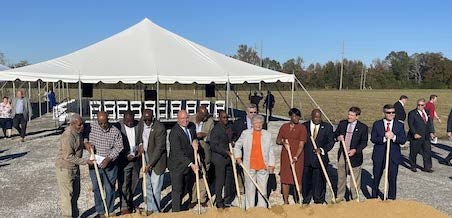Hale and Perry County residents, along with the broader Black Belt region, have been anticipating significant infrastructure projects in their area, particularly the construction of the West Alabama Corridor. However, a series of disagreements and funding disputes have raised concerns about the future of these projects.
The West Alabama Corridor, a major initiative that includes the large-scale four-laning of Highway 43 through Marengo County and Highway 69 through Hale County, aims to enhance connectivity between Mobile and Tuscaloosa. This project has been a point of contention among state lawmakers. State Sen. Chris Elliott (R-Josephine) has expressed concerns about the project’s eligibility for federal funding due to the type of permitting used by the Alabama Department of Transportation (ALDOT). Elliott’s skepticism led him to place a hold on a $75 million ALDOT designbuild contract for the project. In response, State Rep. Chris England (DTuscaloosa) halted 13 other ALDOT contracts, emphasizing the project’s significance to his district and the Black Belt region.
U.S. Senator Katie Britt, R-Alabama, voiced her support for the West Alabama Corridor during a recent interview with WBRC. As a native of rural Alabama, Sen. Britt highlighted the importance of infrastructure development in both urban and rural areas. She emphasized the need to address transportation requirements across the state and advocated for investments in both the I- 65 widening and the West Alabama Highway projects.
Tony Harris, ALDOT’s chief of communication and government relations, responded to the funding concerns by confirming the West Alabama Highway’s eligibility for federal funds. He explained that the decision to use Rebuild Alabama Act funds was due to all federal formula appropriations under the current federal aid highway act being committed to other projects.
But the West Alabama Corridor isn’t the only project facing hurdles. Despite Alabama receiving a historic $945 million in federal American Rescue Plan Act (ARPA) funds for water, sewer, and broadband infrastructure projects, less than $112 million has been spent. State agencies, primarily the Alabama Department of Environmental Management (ADEM) and the Alabama Department of Economic and Community Affairs (ADECA), are now under scrutiny for their ability to meet the federal 2026 spending deadlines. Concerns about potential delays in project completion have intensified, leading to calls for backup plans.
In a hopeful sign for the region, officials have proposed the establishment of the state’s first health sciences high school for Demopolis, in the Black Belt. Named the Alabama School of Healthcare Sciences, the school would offer specialized STEMM curriculum and would be linked to Whitfield Regional Hospital, managed by UAB Health. The hospital would provide students with practical clinical and laboratory resources. However, the final decision on the school’s location is pending a feasibility study set to conclude in February. Some leaders are opposing the school’s Black Belt location, saying the state should invest more in growing areas like Huntsville.
The Black Belt region, historically underserved, stands at a crossroads. With significant federal funding available and projects that could transform the region’s infrastructure, the ongoing disputes and delays raise questions about the state’s commitment to the region’s development.

